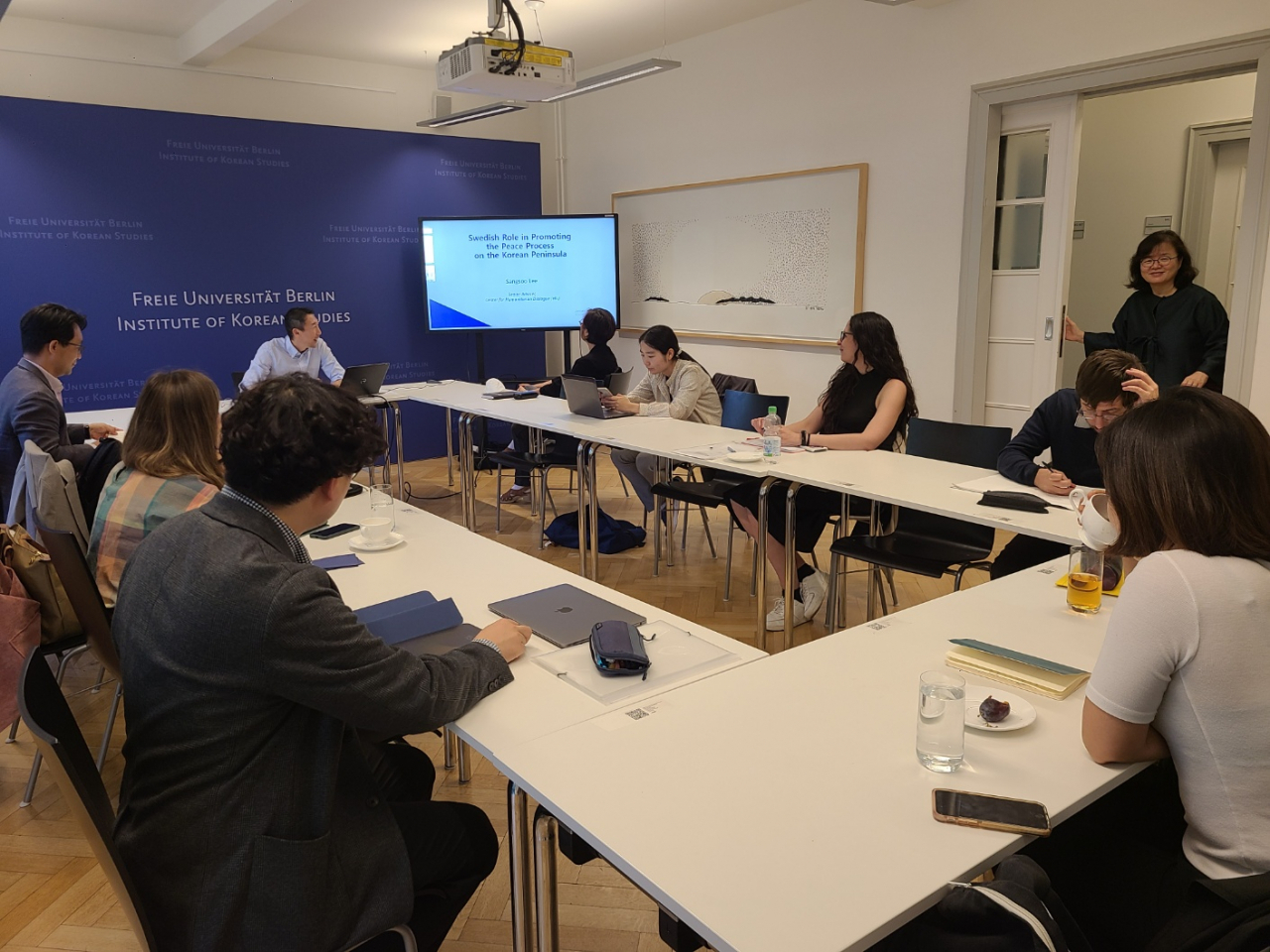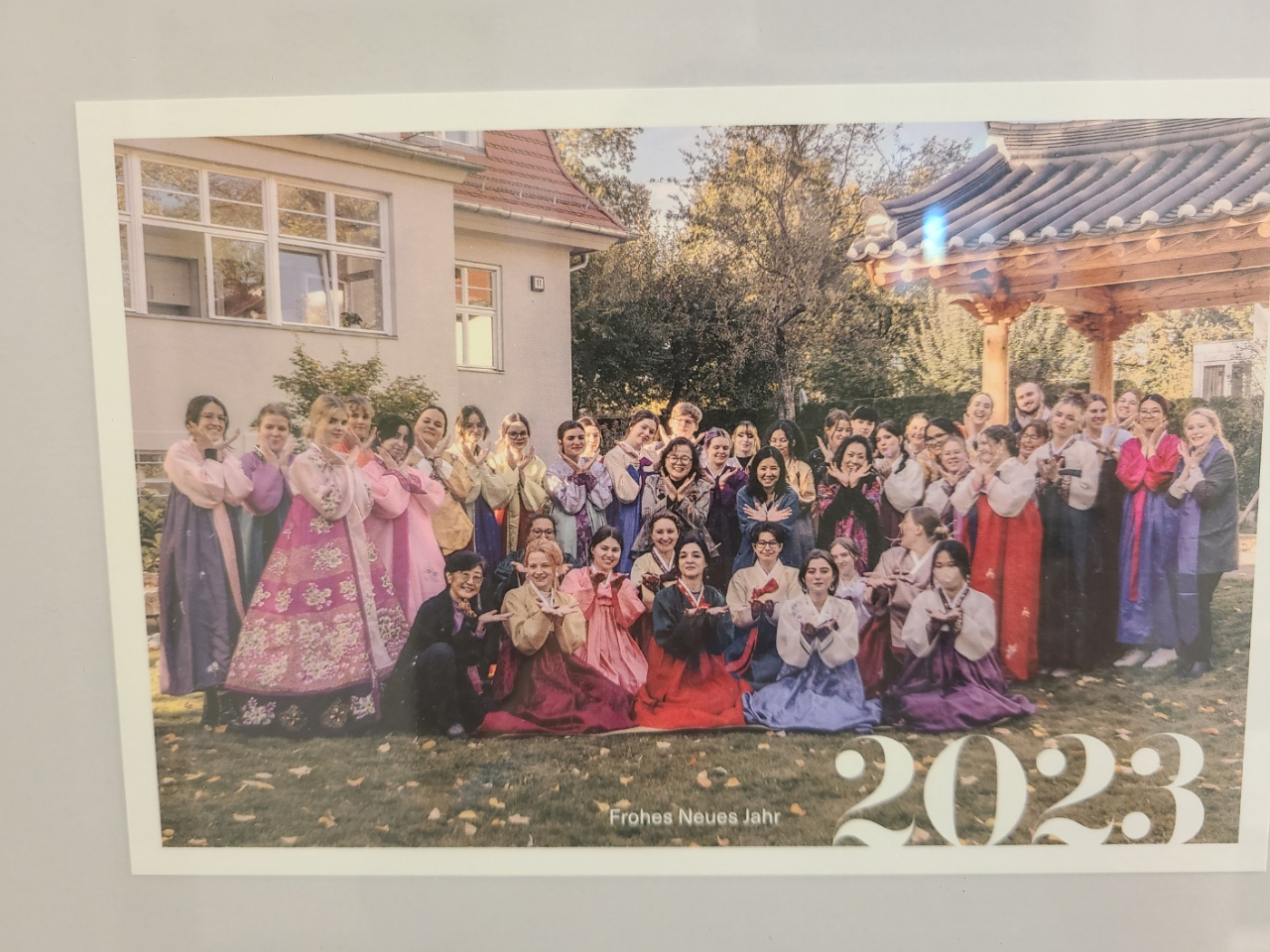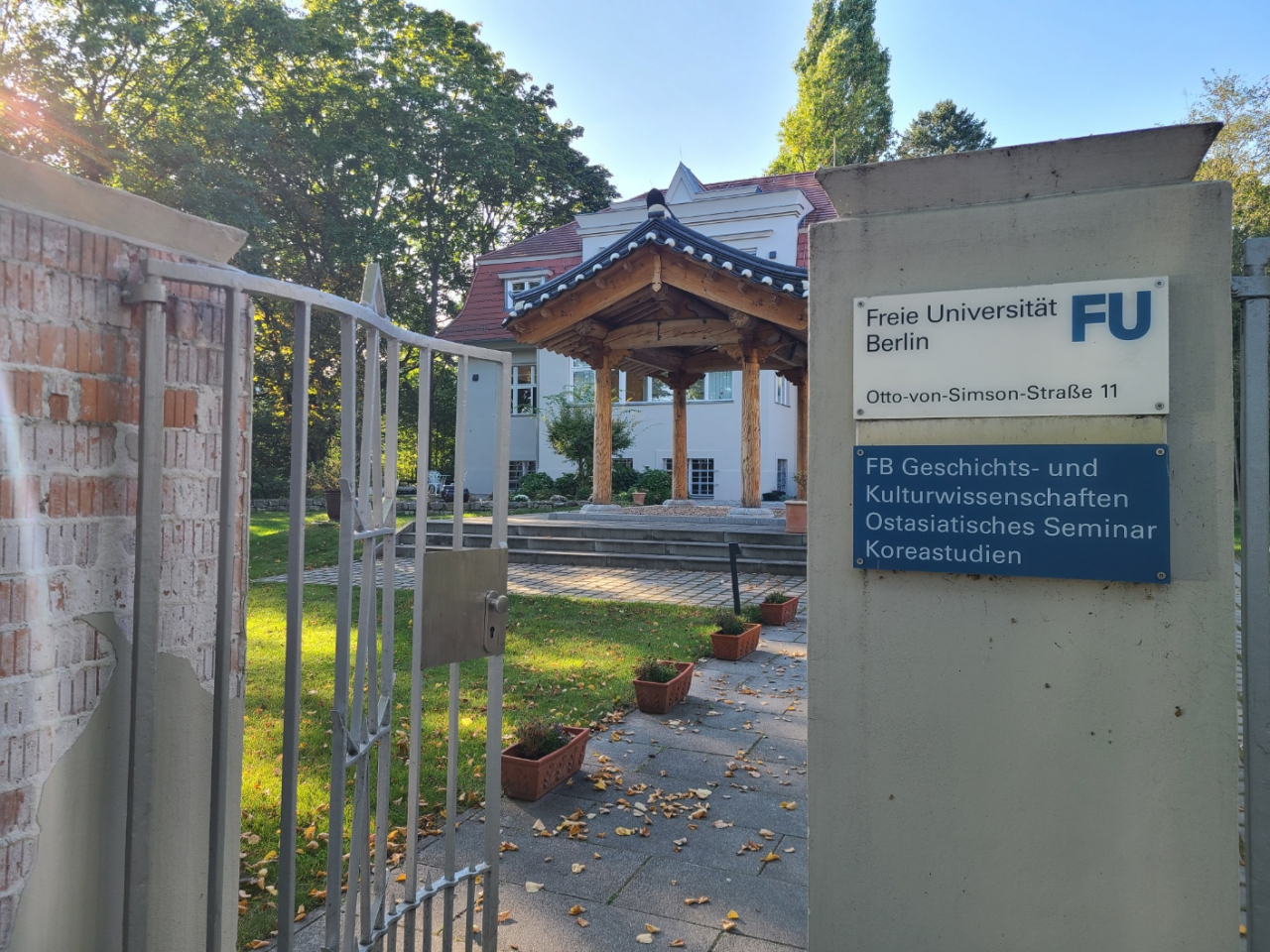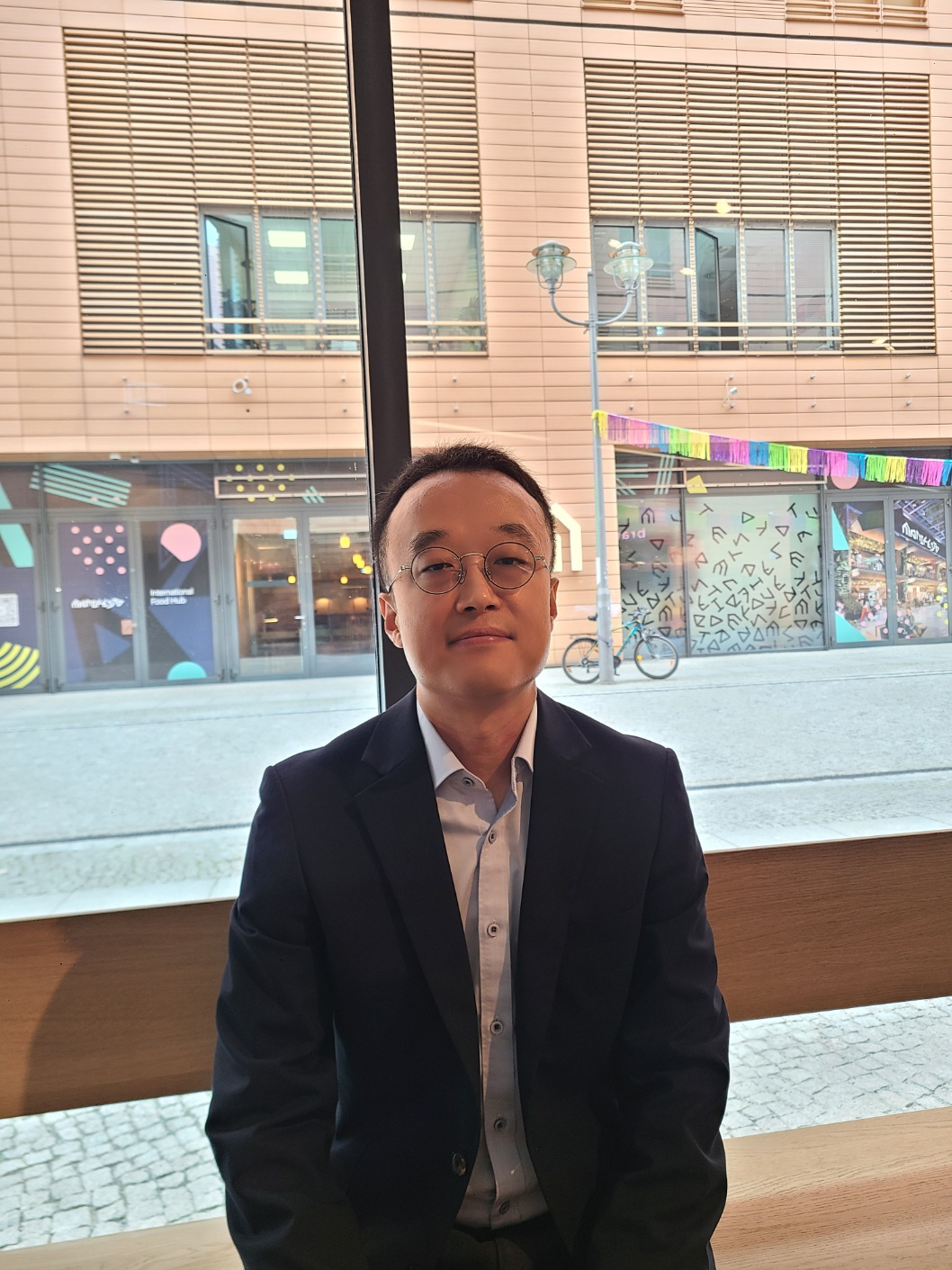[Korea Beyond Korea] Berlin, Europe's Korean Studies hub, nurtures next-gen experts, scholars
Seoul's support welcome, but tighter monitoring of funds for overseas Korean Studies program necessary, professor says
By Jung Min-kyungPublished : Oct. 23, 2023 - 15:44

BERLIN -- Right before the winter semester was about to start in Germany, some 10 students gathered in a classroom in southwestern Berlin in September.
The students, all top Korean Studies majors from across Europe, were selected by the Institute of Korean Studies at the Free University of Berlin to partake in the annual Korean Competence Week.
The weeklong workshop was created to foster the region’s next generation of Korean experts, which is an area that lacks greatly in numbers, according to Professor Lee Eun-jeung, director of the FUB’s Graduate School of East Asian Studies.
In recent years, Berlin has developed into a hub for Korean Studies in Europe. Today, the capital of Germany is home to one of the most prestigious Korean Studies programs in the world and is also a centerpiece to Korea’s endeavor to foster a deeper understanding of the country’s culture worldwide.
Next generation of Korean experts
The students attending competence week sat in on a round table discussion, listening carefully to the senior adviser at Center for Humanitarian Dialogue, a Switzerland-based organization dedicated to resolving armed conflicts around the world. The lesson of the day was about Sweden’s role in promoting the peace process on the Korean Peninsula.
The students were expected to share their thoughts in a follow-up discussion session.
“Our ultimate goal is to foster Korean experts, so they could work in Europe’s public sectors and global organizations or become envoys to Korea,” Lee said in an interview with The Korea Herald on Sept. 28 in Berlin.
Lee explained that most European diplomats or envoys to Korea in both the past and the present majored in Chinese or Japanese Studies, making them experts on those countries, but not experts on Korea.
“We’re trying to change that,” she said.
To become experts, students are required to dive into the rigorous process of earning both a bachelor’s and master’s degree in Korean Studies and sometimes pursue a doctorate.

“Those who come to study liberal arts here must acquire the skill of giving the right answers to the right questions,” Lee said, adding, "We hope that Korean Studies will avoid becoming a victim of Galapagos syndrome and become a more inclusive field of academia.”
Growing demand and concerns
In the 1990s, Korean Studies was just a single course offered as part of the FUB’s Japanese Studies program. It branched out from Japanese Studies in the late 2000s, with two faculty members of its own. Lee was one of the two.
Lee now works alongside 11 other professors.
At present, there are around 70 students who chose Korean Studies as their major or minor in the undergraduate program at FUB. The Institute of Korean Studies has a separate building with a traditional Korean style entrance.
There are no students of Korean nationality in FUB’s Korean Studies program. They are mostly from Germany, Eastern European nations or Vietnam.
“In the late 2000s, when FUB’s Korean Studies just became an independent program, there weren’t many students who scored high on German college entrance exams,” Lee said.
“Now the bar is much higher and students choose to enroll here instead of going to medical or law school. Ninety percent of our freshmen know how to read and speak in Korean.”

It takes a minimum of three years for undergraduates to cover everything offered here, from Korean history, culture, politics to North Korea.
“Korean Studies include studies on both South and North Korea,” Lee explained.
“Inter-Korean relations and North Korea’s nuclear issues is a very popular topic for (student's theses).”
However, Lee added that there were no North Korean students attending the program, though there have been student exchanges with Kim Il Sung University in the past for academic purposes.
German universities double as both teaching institutions and think tanks, which is why it is crucial for Korean Studies to be developed in both directions.
“It is important for our research to be recognized by Germany and beyond. It will open doors for opportunities to allow students to study everything they want to know about Korea,” Lee stressed.

The Korean government-affiliated Korea Foundation’s European office is also located in Berlin. The KF was established in 1991 to promote a better understanding of Korea around the world. A major task of the group is to extend support to international universities for the establishment of Korean studies professorships and the employment of contract faculty members.
The foundation's incumbent director, Woo Byung-kook, who was appointed to lead the office in Berlin earlier this year, says that he is being kept busy with several upcoming tasks.
“The Berlin office handles the task of promoting and helping the growth of Korean Studies across the entire Europe,” he told The Herald at a cafe in Berlin on Sept. 29.
Professor Lee, while welcoming the Korean government’s support for the growth of Korean Studies in Europe, stressed the need for tighter monitoring on where the money ends up.

“There are some individuals and institutions that abuse the funding system. They back out of the (Korea-related research) pledge once they are chosen for funding,” she said.
“Tighter monitoring and hiring of experts that are well informed of the situations in different countries are necessary.”
“Korean Studies Beyond Korea” explores the current landscape of Korean studies through interviews, in-depth analyses and on-the-ground stories told from various locales around the world. Funded by the Korea Press Foundation, this series delves into the challenges and opportunities facing the field as Korea's rise as a cultural powerhouse has drawn interest from scholars, researchers and leaders from around the globe. – Ed.



















![[Today’s K-pop] Treasure to publish magazine for debut anniversary](http://res.heraldm.com/phpwas/restmb_idxmake.php?idx=642&simg=/content/image/2024/07/26/20240726050551_0.jpg&u=)